What are the signs and symptoms of moderate and severe ABI?
Mild Brain Injury:
A mild brain injury can be described as a concussion in certain situations; depending on the circumstances it is possible an individual may lose consciousness.
Mild brain injuries can also be assessed using the Glasgow Coma Scale, using this tool the injury is classified at a score of 13-15. In the event of a mild brain injury the individual affected is usually released from hospital to the care of a responsible adult. The physician will have provided instructions on how to provide care and when it is necessary report back to the hospital if behaviour has changed or symptoms persist.
Moderate Brain Injury:
A moderate brain injury is also described as a concussion of a more severe level than a mild brain injury; it is classified as a score of 9-12 on the Glasgow Coma Scale and can be acquired in the same or similar circumstances. It is possible that this type of injury can lead to significant cognitive impairment; this is described as post concussion syndrome. Post concussion syndrome can last from 2 weeks up to 2 months following the injury, and show various symptoms that have an effect on an individual’s activities of daily living.
- A persistent headache
- Behavioural changes
- Decreased short term memory
- Lethargy (drowsiness)
- Personality Changes
- Shorter attention span
- Changes in intellectual ability
It is a common assumption that concussions resolve themselves over time, however for those suffering from a moderate brain injury may be on a longer road to recovery over the course of many years. This is why it is important for the individual who suffered the injury and their main care provider to follow instructions and information offered by the physician. It is also much more likely for those who have already suffered a mild or moderate brain injury to suffer future concussions as well, returning to contact sports or activities should be avoided until all symptoms have been resolve and then gradually reintroduced.
Severe Brain Injury:
Severe brain injuries are classified at a score of 3-8 on the Glasgow Coma Scale and are characterized by a contusion (bruise) near the site of injury and lacerations (actual tearing of brain tissue). Some words you might hear from health care providers in care related to the site of a contusion are:
- Hemorrhage (bleeding that lasts longer than a few minutes, can be life threatening)
- Edema (gathering of excess fluid in internal spaces of the body)
When referring to lacerations and severe brain injuries tissue damage can be severe enough that surgical repair is impossible. The following are some terms you may hear from health care providers in this circumstance.
Hemorrhage
- Hematoma (swelling of excess blood within tissue or internal space of the body)
- Cerebral Edema (swelling of the brain)
CT scans are ordered in these circumstances to evaluate the severity of the individual’s injury based on the amount bleeding surrounding the contusion site. These allow the physicians to view and evaluate any internal damage that cannot be seen or predicted otherwise.
